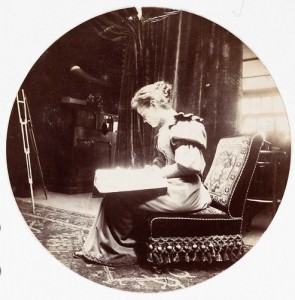In a world where attention spans seem to be on the wane, the wisdom of publishing thick volumes has often been questioned. Do people have the time to devote to these large tomes? Do these books, that typically run into 500 pages or more, fit in with the average reader’s daily schedule. With the Kindle and the iPad around and with people perpetually on the move, is it wise to ask someone to lug these books around? Is the era of fat books over?

The jury might still be out on that one. In the meantime, some innovative entrepreneurs have tried to address the demands of those more comfortable in a world where 140 characters are the norm. This is a space that Daily Lit quite made its own before others appeared on the scene. No novel was too big after Daily Lit made itsits presence felt. Everything could be digested – in amounts one was comfortable with. Daily Lit made it easy to access these “bits” too as they were delivered directly to one’s inbox.
Another such venture is Penguin Shorts. As claimed on their website, these books are “designed to fill a gap”. Perhaps of having something to read, on a device that is portable, during time that is too large to while away yet too small or inconvenient to engage in serious work. Like while waiting for a flight at an airport, perhaps. These books are available exclusively in digital form, which allows readers to download these books on their devices and read them that instant. An impulse purchase, if you will.
An earlier exponent of this idea was, of course, Amazon with Kindle Singles (seems like there is little creativity when it comes to naming these imprints!). It was positioned as a form that was “much shorter than a novel, but longer than a magazine article”. It attempted to appeal to those with little patience for the long form and that in turn spawned counter efforts such as longform.org and The Atavist.
In between them are services like Instapaper and Read It Later. These services allow you to mark content for future reading. Although this service is primarily available for mobile devices, hence subscribing to the idea that readers want their information to travel with them, it stems from the belief that readers prefer details.
In the end, one would take a risk making too general a statement. Books will still be bought based on one’s choice of reading matter and even by the service accorded to the reader at the bookstore. In this aspect, perhaps, online stores, especially those selling e-books, hold an edge. On such platforms it becomes easier to pitch the story to the buyer and prevent knowledge of the number of pages. Ultimately, content will remain king.
I love a good fat novel! A Kindle or Ipad would never replace a book a book for me though I totally get the concept of digital books. Very useful if the library isn’t close by. Thanks for posting. I’m subscribed to Daily Lit but hadn’t heard of the others. Great resources.
In my opinion the day and times of the thick novel is gone or receding rapidly. Once thick novels are abridged and offered in e-book format, there will be a rejuvenation of interest in the stories.
Since I have acquired a Kindle reader I do not order printed novels. If the book I want is not in e-format, I disregard it…knowing it will soon be offered in digital format.Even old classics are now available as e books. The option of ordering and downloading 50 to 100 books on the Kindle is unsurpassable. Then also if I don’t like a book, I just delete it and it disappears into cyber space and I don’t have to store it in my book cupboard. If I want to have the book for future use I archive it.
If I had to lug a hundred books along,I would require a good sized suitcase. Whereas my Kindle slips comfortably into my jacket pocket.